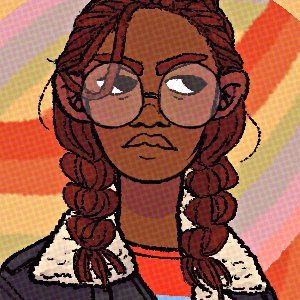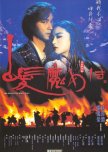This review may contain spoilers
[Watched/Reviewed on Letterboxd 5/03/2021]
One of the influences behind "Xena: Warrior Princess" (and "Mortal Kombat 3"), "The Bride with White Hair" feels more like a lead-in to a more substantial story than a narrative unto itself.
The literal Bride with White Hair doesn't show up until the climax of the film, something that feels altogether rushed, but no less satisfying as a conclusion to the film that is basically a flashback setting up events for its sequel, "The Bride With White Hair II".
The film is supported primarily by its flair, 'wuxia choreography', and visual style. Outside a reliance on anti-Black and anti-indigenous stereotypes (actors walking around in outfits seemingly inspired by the Tiki villain in ,"Scooby Doo," and brownface), the film's soft lit, dreamy cinematography works for the almost fairy-tale approach to the story.
It communicates just enough about its lead characters (Cho Yi-Hang and the wolf-girl, Lian Ni Chang), and the ideology of their supporting cast that, even with how rushed things turned out, the story isn't a clear cut tale of good and evil.
It's a solid example of what happens when vendettas and tribalism turn communities on each other. It's just a shame that the story never tried to build Cho Yi Hang and Lian Ni Chang's relationship to explore that rift outside their apathy or objection to war altogether. Most of their screen-time is wasted on soft-core (porn) sex scenes in the water.
One of the influences behind "Xena: Warrior Princess" (and "Mortal Kombat 3"), "The Bride with White Hair" feels more like a lead-in to a more substantial story than a narrative unto itself.
The literal Bride with White Hair doesn't show up until the climax of the film, something that feels altogether rushed, but no less satisfying as a conclusion to the film that is basically a flashback setting up events for its sequel, "The Bride With White Hair II".
The film is supported primarily by its flair, 'wuxia choreography', and visual style. Outside a reliance on anti-Black and anti-indigenous stereotypes (actors walking around in outfits seemingly inspired by the Tiki villain in ,"Scooby Doo," and brownface), the film's soft lit, dreamy cinematography works for the almost fairy-tale approach to the story.
It communicates just enough about its lead characters (Cho Yi-Hang and the wolf-girl, Lian Ni Chang), and the ideology of their supporting cast that, even with how rushed things turned out, the story isn't a clear cut tale of good and evil.
It's a solid example of what happens when vendettas and tribalism turn communities on each other. It's just a shame that the story never tried to build Cho Yi Hang and Lian Ni Chang's relationship to explore that rift outside their apathy or objection to war altogether. Most of their screen-time is wasted on soft-core (porn) sex scenes in the water.
Was this review helpful to you?











